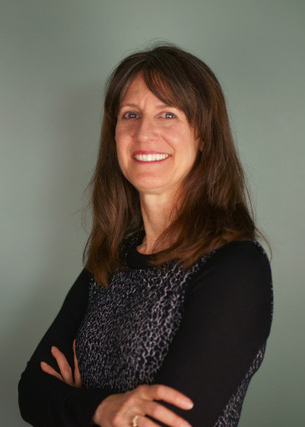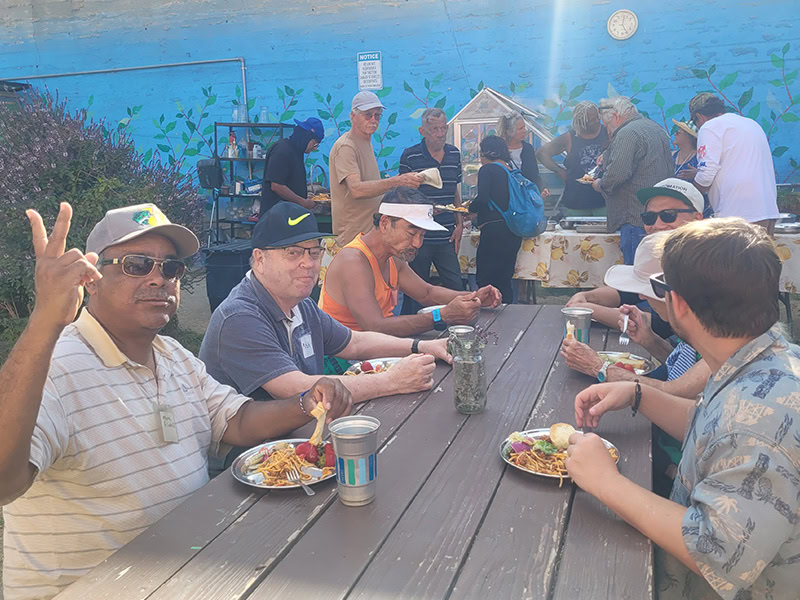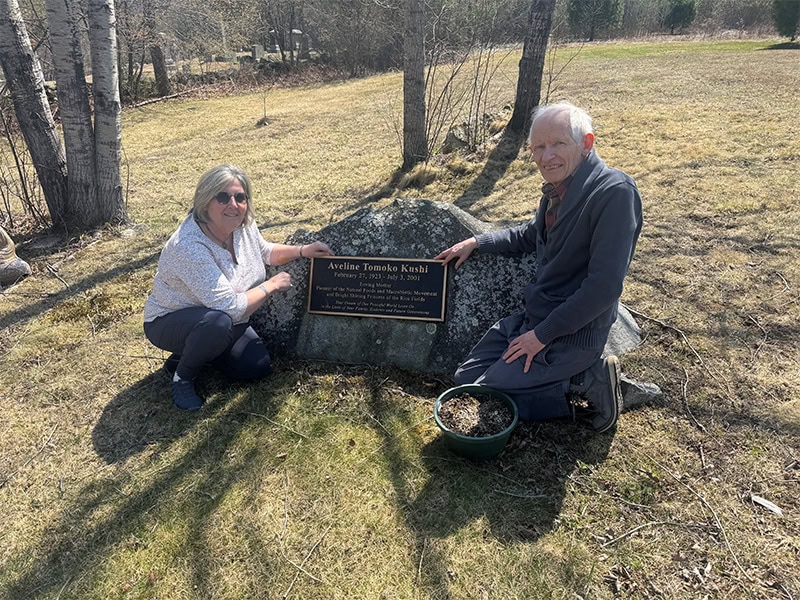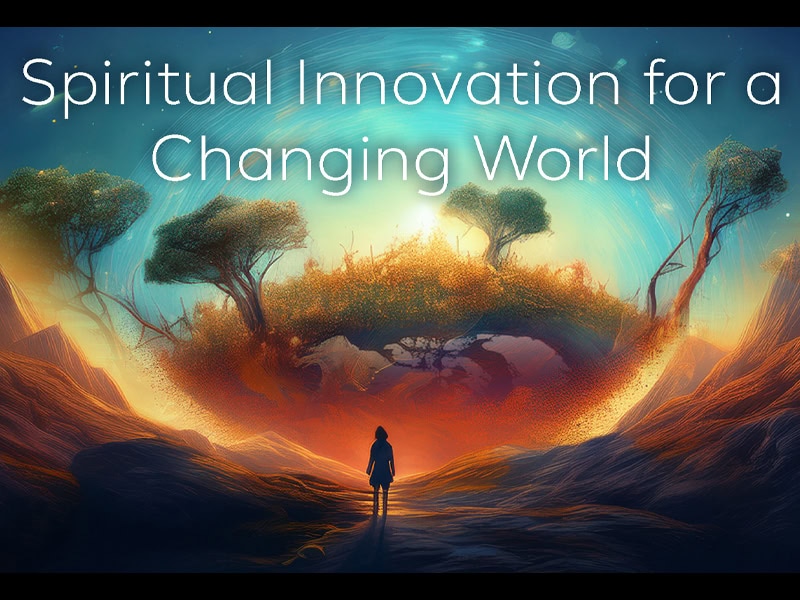Written by Catherine Lauber
There is an illness that is sweeping the globe right now, that is causing all kinds of chaos and struggle, and pressures for individuals and families and communities. I see this illness present in people who are struggling with their mental health; I see this illness in families who are fighting and divided, and in relationships of all kinds that are breaking down in spectacular ways. Even our businesses and political organizations are succumbing to this illness, leading to major disruptions in our social and economic lives.
It’s a powerful illness, it’s very contagious… and its name is fear. As the opposite to love, I believe that fear is the illness that we as a human species are collectively experiencing right now. Managing fear is the lesson that humanity is being asked to learn in this masterclass on regeneration.
Now, let me just clarify that we are still in a very real pandemic. That’s the reality of the environment that we’re in, although, we might be starting to get a glimpse of the light at the end of the tunnel—which would be great.
It’s the reality of over two years of living in such chaotic and uncertain times that has tested every one of us in our ability to resist the temptation to fall into fear, rather to stay grounded in some sort of kind and loving state of mind.
It’s next level spiritual growth and it is being played out in arenas closer and closer to home, which is part of what makes it so challenging. It’s one thing to live out Christian values at arm’s length to the world. It’s a whole other level when it is within our closest relationships that tensions are rising. We’re being asked to dig deep to find a way through—to stay grounded in love.
How do you stay grounded when the ground is breaking apart beneath your feet?
How do you stay on the path when there is so much chaos and uncertainty, that the path has disappeared and you’re not even sure what direction you’re headed in anymore?
How do you resist falling into fear when fear seems to be all that is being offered to us?
I invite you first to remember Jesus’ words, “This illness does not lead to death.” If there is nothing else that you take from this, please remember those words when you recognize fear in yourself or in another person, or anywhere else the fear might be coming in from… name it as the illness of our time and remember Jesus’ words: “This illness does not lead to death.”
Here’s why I think that’s true for our times. You see, the human mind likes certainty and familiarity. When things are familiar, routine, and we know what’s coming, and there are no surprises—our minds are good with that. Familiar is comfortable. Familiar is safe.
When things are changing there is a shift that happens in our minds. When things become so uncertain and unfamiliar, part of our natural response is for our minds to be anxious and fearful. We go into our fear response. It’s part of our survival system—keeps us safe when there’s a real threat to our lives.
It’s hard to keep the mind out of fear when we are amid chaos. It will bring to the surface e-v-e-r-y fear that we hold. And sometimes, when our fears are rising to the surface, we will go looking for more things to worry about, and our minds will start making up new fears—it becomes a vicious cycle. It doesn’t take much to fuel the cycle.
But here’s the thing: we have the ability to raise our minds up out of fear. We can disrupt the cycle. “This illness does not lead to death.”
The story of Lazarus, in part, demonstrates to us that the mind can be raised up. When it is raised up, miracles happen—miracles happen through the power of love.
Swedenborg wrote about the different levels of the mind that relate to the three Universal Loves—love of God and heaven, love of the world, and love of self. Because of these levels, the mind can be raised up into heaven and dwell in the Holy City, or it can spread out in every direction focused on the world, or it can sink into itself and risk a hellish existence of unloving self-centeredness.
To me, that sounds like he’s talking about perspective. The mind raises, or spreads, or sinks. Each of these movements changes our perspective a little. I think giving into fear is the fastest way of sinking the mind into hell because it narrows your perspective. Biologically, when we are in fear, things get super narrow focused and some of our higher thinking goes offline, and that’s so that we can address the threat quickly, resolve it, and if we survive, then we move on. That’s not what we’re living with right now. The constant, ongoing uncertainty is creating chronic stress and an inability to resolve the threat, leaving us is fear with this narrow focus. Too narrow a focus can have a negative impact on our state of mind.
But we also know that a shift in perspective can have a powerful effect on a person’s mood.
Proverb: “Instead of complaining that the rose bush is full of thorns, be happy the thorn bush has roses.”
Perspective: What level of mind are you going to prioritize? Sinking into self—upset that I’m going to prick my finger on those thorns and it’s going to hurt, and then I’m going to be miserable.
Or rising up into heaven—marveling at the beauty of creation and appreciating the roses that grow out of such a prickly environment.
One of the keys to changing our perspective is to remember what we’re aiming for.
Moving can be used to demonstrate the breakdown that has to happen before the recreation of the new can take place.
I am in the middle of a move right now—there are boxes everywhere; stuff is pulled out and piled up, and it’s a proper mess as my friends in England would say. I’ve been living in this form of chaos for a few weeks now, and at times it has felt overwhelming, definitely anxiety producing. I just want it to be done. I want the mess to go away, and for things to feel settled again.
One of the things that has helped me get through this move, is to remember why I’m doing it. To remember where I am headed. Which is a lovey new space, with lots of windows, in a nice neighborhood, close to work, and cute little front porch to sit on and watch the world go by. I know where I am headed—when I can remember that, it helps make the chaos less overwhelming. It helps give me the push I need to follow through and take the actions necessary to get to where I’m going—keeping in my mind a clear picture of the new space and focusing on the feeling of joy and excitement that a new living space brings.
Those are heavenly qualities—joy and excitement. I can lift my mind up into heaven, looking towards God with gratitude. That’s a powerful practice for helping keep our loves ordered. Shifting my perspective from looking narrowly at the ground, and the hell of the chaos around me, and instead look up to God and connecting with those higher energies. Dwelling in the Holy City of the mind.
The human mind will move through these different levels that Swedenborg has suggested, depending on the circumstances. Our focus will shift from our prayer and meditation times to our worship times. Looking to God and heaven, on to the practical matters of living in the world today, spreading our focus out into the world and the environment we find ourselves in, or when we need to pull back, to sink into our minds and focus on ourselves for a while. It’s a constant dance in our minds—movement up and down, outward, and all around.
The skill that Swedenborg is proposing we build up, is the practice of keeping our loves ordered properly. Keeping our eye on the goal, the Holy City—that state of peace we experience when we are aligned with God and heaven, with the love of heaven as our anchor so that when the mind goes off and spreads out to focus on the world, or sinks into ourselves when needed, we don’t get lost.
When our intention is to keep the love of heaven as our focal point, that becomes our tether for when our mind spreads out or looks down—then the mind can be raised back up into heaven. It is a practice, like a workout. The more we consciously move our minds out of fear and anger and lift them up to heaven focusing on being loving, compassionate, respectful, and kind, the more familiar these states become, and the less our fear gets activated because our minds like what is familiar. So, if we build up that muscle of heavenly qualities becoming more and more familiar, then there is less and less activation of the fear in our minds. We recover from the illness. The spiritual illness.
Just a side note here on mental illness—we are talking today about spiritual wisdom to help move us forward during chaotic times as we strive to walk a spiritual path. Mental illness, is a serious health challenge that can be difficult to overcome by ourselves. If you are facing a mental health challenge, then please seek out the help of a professional, who has skills and knowledge to help you move through it. Sometimes the Lord is leading us down the streets of the Holy City, and sometimes the Lord is leading us through the front door of the doctor’s office. Sometimes we need to pull in all the resources we can to help get us through the chaos. And an ongoing, worldwide pandemic would be one of those times. Please keep that in mind.
Where we are still able to draw upon our own inner resources, the idea of keeping our universal loves properly ordered helps us create that Holy City in our minds.
Love of God and heaven,
Love of the world,
And Love of self.
Anchored in the love of God.
When we are anchored in the love of God, no matter how far into fear we are, no matter how dead we appear, the spirit is still alive, and Christ can raise us from the dead of our fears and restore us to life in God. Bringing heaven to earth through the Holy City of our minds. And if that isn’t good news, I don’t know what is.
Read the full issue of the June 2022 Messenger

Meet Catherine Lauber
Rev. Catherine Lauber works as a registered psychotherapist and has a private practice in Cambridge, Ontario. Her focus is working with psychology and spirituality, observing the intersection of these two, and looking to see how they impact healing at a personal level.



